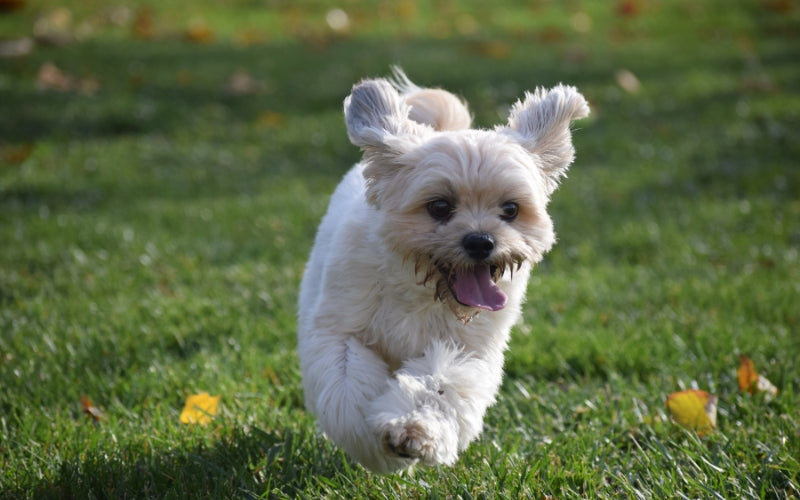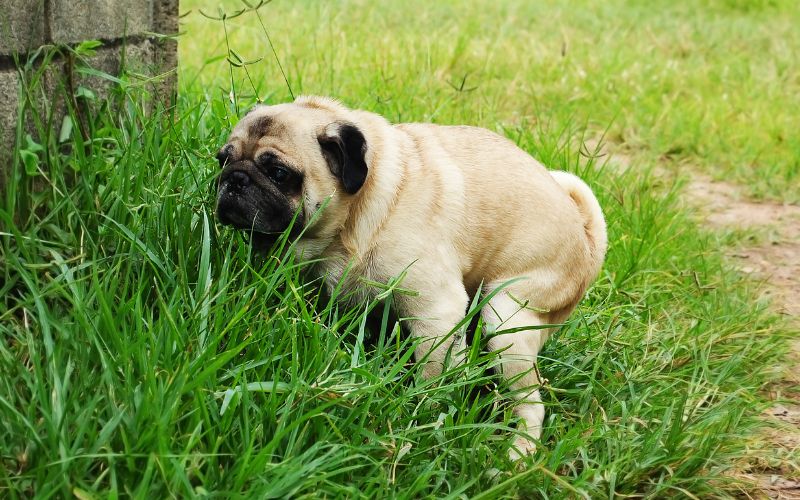Welcoming a puppy into your life is a huge decision and a long-term commitment, so you have to be sure that it’s the right choice for you.
After all, the average lifespan of a purebred dog is 11.9 years, while a crossbreed averages 13.1 years.
You may be asking yourself:
- Do I have the time for an energetic puppy?
- What are the wellbeing essentials a puppy needs in order to thrive?
- Which dog breed is best for my lifestyle?
Australia is a country of dog lovers, with over 5.5 million dogs providing companionship to families across the land. In fact, the ratio of pets to the human population means that there are more animal companions in Australia than there are humans!
The most likely reasons for welcoming a dog include companionship, affection and comfort, while many dog parents relish a more active lifestyle, better mental health and positive routines.
While owning a dog can be wonderfully rewarding and full of joy, there’s so much to consider before contacting a breeder or visiting a shelter.
Luckily, we are here to help you decide if a puppy is right for you. Read on for the three main things to consider before welcoming a young dog into your home.

How time consuming is a puppy?
To answer this frequently asked question, we need to consider the different areas of puppy ownership. These include:
- Exercise
- Food
- Grooming
- Play
- Socialisation
- Training
A puppy will inevitably require more attention than an older dog, as they require more training during their first year and are often more energetic too.
However, they also sleep for a lot longer than most people realise. Typically, a puppy will average around 18-20 hours of sleep per day, which is more than an adult dog.
You should expect to dedicate a solid three hours per day to caring for your puppy. This should allow enough time for plenty of interaction and essential care between puppy naps.
It’s also important to remember that a puppy will wake you during the night and early in the morning, so be prepared for broken sleep! Until your puppy is toilet trained, they will need to go outside every few hours.
A good rule of thumb is that a puppy can typically hold their urine for their age in months plus one. So, a three-month-old puppy will likely need to go outside every four hours. However, once they gradually build bladder control, they will sleep through the night.
As a puppy can’t tolerate long stretches of time alone, it’s a great idea to organise getting a puppy in line with holidays or being able to work from home. At least for the first few weeks.
Once you return to work, a reputable pet sitter or doggy daycare will ensure your puppy is in safe hands and reduces the likelihood of separation anxiety.
What to feed a puppy for optimal wellbeing
A diet packed full of nutrients is a wellbeing essential for a growing puppy. We often hear dog parents ask ‘what is the healthiest puppy food?’.
At Wellbeing For Dogs, we advocate for a real food diet. A real food diet means you have full control of your holistic dog’s food and know exactly what they are consuming at all times.
However, it can be hard to know if your energetic puppy is receiving all of the nutrients they require at this vital stage in their development. This is why supplementation is a great idea for puppies following a real food diet.
Wellbeing Essentials Complete 22 is a balanced nutrient blend that can be safely added to your puppy’s meals. To ensure your dog is receiving calcium for healthy bones and teeth, you can double the amount to 2g per 1kg of puppy weight.
Calcium/phosphorus balance is important for growing puppies and all puppies will benefit from uncooked bones, supervised of course. Be sure to check the nutritional profile first or consult your veterinarian.

How to pick the best dog breed for your lifestyle
Before committing to a puppy, it’s essential to do your research. It’s easy to instantly fall in love with an adorable puppy, but not all adult dogs will suit your personal circumstances and way of life.
There are many elements to consider when choosing the right dog breed, including:
- Energy levels
Are you someone who thrives on exercise or do you prefer curling up quietly with a good book? It’s best to pick a dog breed that matches your own energy levels to ensure harmony.
For example: a Husky or Kelpie is perfect for people who have plenty of time for outdoor pursuits, while a dog that requires less exercise - such as a Shih Tzu or Pug - is great for those who are less active.
- Size
Whether you prefer smaller or larger dogs is often down to personal preference. However, the size of your dog will usually have an impact on your lifestyle and pocket.
Larger dogs generally require more space to stretch out and roam, so are less suited to apartment living than most smaller dogs.
Meanwhile, the larger the dog, the more food they will consume. So, be sure to factor this into your decision and budget.
- Family dynamics
Are you looking for a lap dog? You may find a small, easygoing dog, such as a Bichon Frise or Pomeranian, is the perfect cuddle companion.
Maybe you have a young family and want a friendly, energetic dog that will adapt well to a busy household? A Labrador or Cavalier King Charles Spaniel could be an excellent choice.
Does someone in your household have an allergy to animal fur? Hypoallergenic dogs, such as Maltese and Labradoodles, are ideal for those who suffer from allergies.
It’s important to carefully consider your family dynamics alongside breed personality, characteristics and traits before bringing home a puppy. Do plenty of research and speak to other dog owners to ensure your chosen breed will be a perfect match for your family.
In Conclusion
Welcoming a puppy into your home requires lots of research and planning. It’s a huge responsibility, after all.
Before making your decision, it’s important to ask yourself…
‘Do I have enough time to care for a puppy?’
If the answer is yes, then consider your personal circumstances and family dynamics to ensure you pick the right breed.
It’s also a great idea to research and plan your puppy’s diet early on. This ensures they will be getting enough nutrients from the very beginning, which is a vital time period for growth and development.
Keen to introduce a natural diet alongside supplementation for optimal strength and growth? Download our free eBook for all the tips and information you need to get started with real food.




